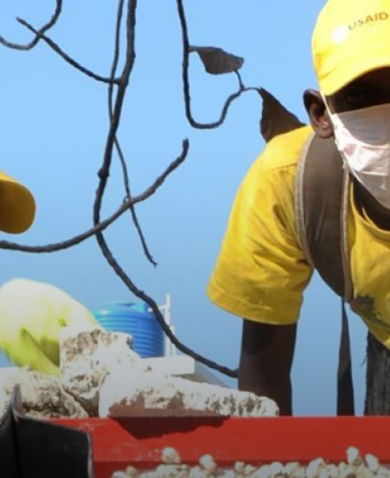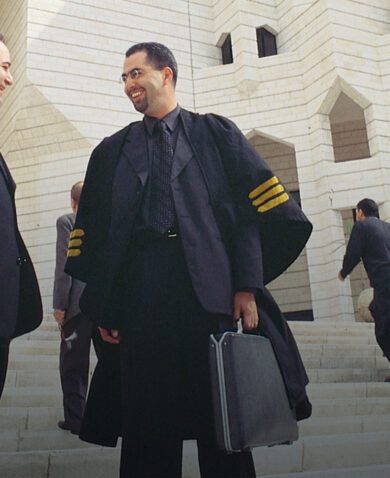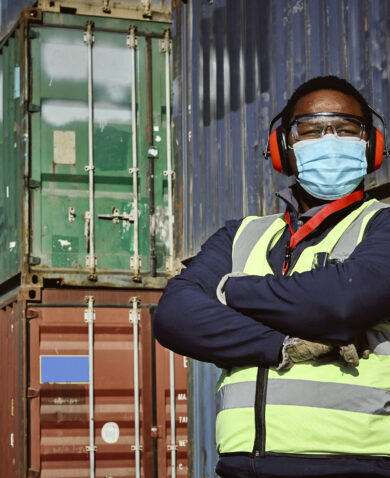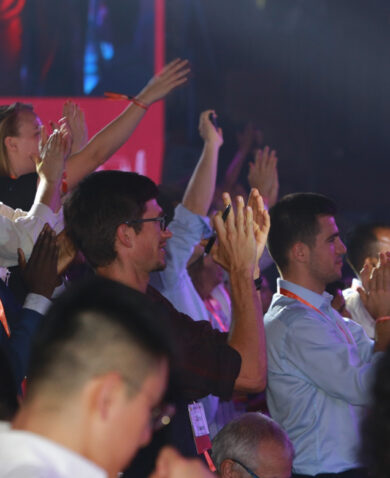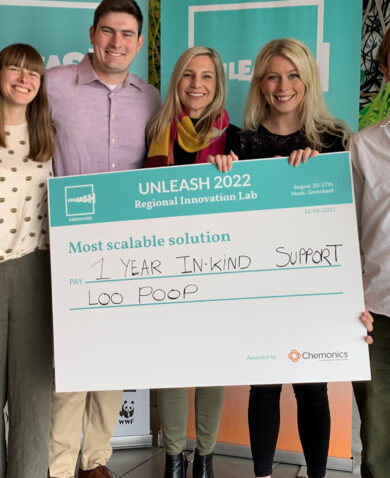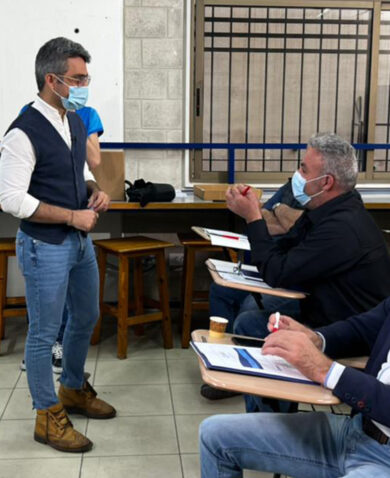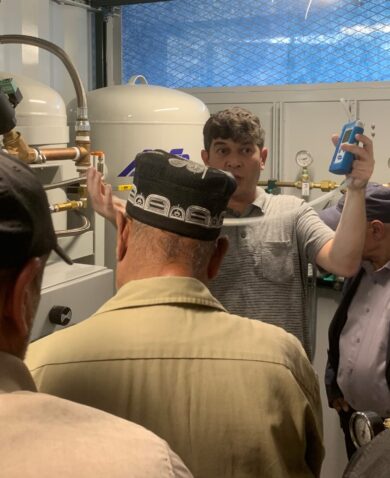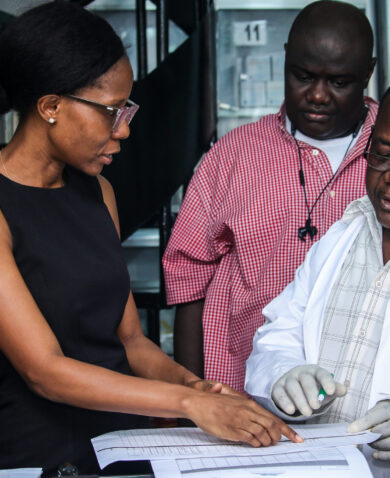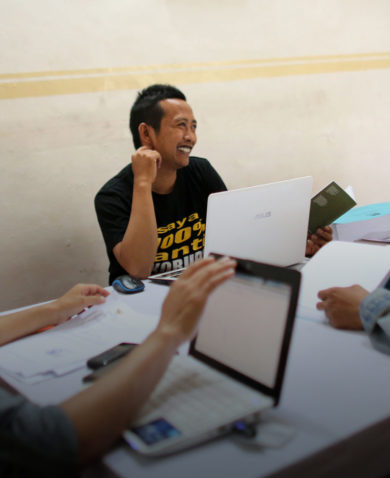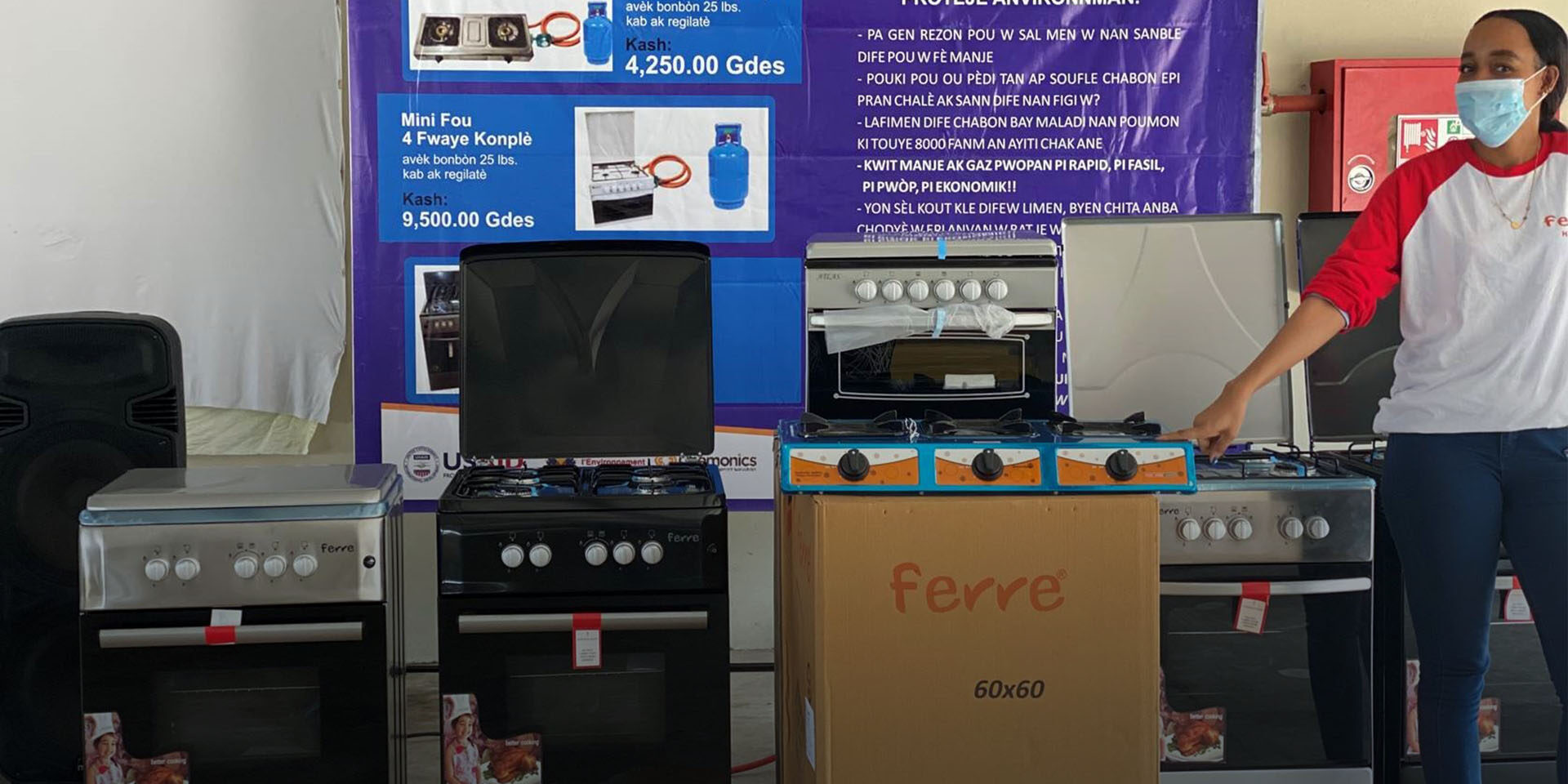
Voices from Our Projects: Critical Skills for Private Sector Engagement
November 5, 2020 | 5 Minute ReadExperts from our projects across Latin America offer tips and insights about critical skills needed for effective private sector engagement.
This blog post is the second in a series on private sector engagement. Check out our previous blog here.
You’re starting up a new project. Perhaps it’s focused on environmental protection, or anticorruption, or at-risk youth. In any case, you know that the private sector will be a critical partner for achieving your objectives sustainably. But what skills are needed for effective private sector engagement (PSE)? And how can your team start productive conversations with the private sector?
To answer those questions and guide your efforts, we’ve tapped three Chemonics PSE experts to share what they’ve learned through their PSE experiences. Gabriela Posada, from the USAID Mexico Juntos para la Prevención de la Violencia (JPV) Project, is the regional coordinator, facilitating the program’s locally driven strategy by opening doors and creating the conditions for successful private-sector partnerships. Meanwhile, Jessica Soto, from the USAID Transparent Public Investment (TPI) Project in Peru, leads the participation and engagement of the private sector by generating effective alliances, promoting their commitments, and implementing integrity mechanisms and anti-corruption prevention models. Finally, Oscar Jacob, from USAID’s Reforestation Project in Haiti, strategizes and executes any type of PSE that aligns with the project’s objectives: charcoal reduction, diversified livelihoods, tree planting, and governance components. These experts responded to a series of questions, and their tips and insights are below.
Was there any prior experience that helped you succeed in this role? What skills do you think are necessary for development professionals to successfully work with private sector partners?
Gabriela: For 10 years I oversaw a marketing agency and dealt directly with companies and foundations. To achieve our sales objective (be it an idea or a product) the most important thing was to have a clear message and make people feel that they were in a safe space. One key lesson:
- The importance of empathy. It’s important to have empathy — to show interest in the way the private sector partner understands “social responsibility.” You must invest time in truly listening to them, and little by little, you’ll raise the possibility that there are other approaches that will help them achieve their desired results with greater impact.
Jessica: At my previous job working at the National Confederation of Private Entrepreneurial Institutions in Peru — which includes 22 business associations and represents the main economic sectors in the country — I developed skills to facilitate public-private dialogue and coordinating among business associations and chambers within my country and at the regional level. One key lesson:
- The importance of collaboration and linkages. A PSE practitioner should have the ability to establish communication bridges and facilitate collaboration processes at two levels: between private sector actors and between the private and public sector. Facilitating collective work among members of business associations is important to promote behavior change. For example, in the case of TPI in Peru, working with both private associations and chambers of commerce is key to generate incentives and encourage members to align themselves with ethical behaviors and adopt self-regulation mechanisms against corruption. On the other hand, being able to facilitate public-private dialogue and commitments is also very important. This relationship is vital to implement public policies that benefit both the private sector and citizens.
What advice do you have for those preparing for initial conversations with the private sector?
Jessica: My main recommendation for those who are preparing initial conversations with the private sector is to create a roadmap of the key national and regional stakeholders’ main strategies, activities, resources, partners, and incentives that drive their decisions. This is important because it identifies opportunities and challenges for the project. Likewise, I recommend having a methodological guide for the conversation with the private sector, which may include questions such as:
- What are the challenges and barriers the private sector faces related to the problem we need to address?
- How can the private sector solve this problem? Can they solve it alone?
- What are the roles and interests of the private sector in addressing this challenge?
- Are there factors constraining the private sector from involvement and investment?
- Is there a space to help alleviate or eliminate these constraints?
For the TPI team, USAID’s Private Sector Engagement Policy has been an excellent guide.
Oscar: Take the time to put yourself in their shoes and brainstorm what the private sector partner’s incentives are. How do they make money? What threatens their business? What is preventing their growth? While NGOs and development practitioners are sometimes wary of the profit motivation of the private sector, business managers likely have a fiduciary duty towards shareholders, and so they can’t make decisions that would hurt the bottom line. Understanding the private sector’s motivations will help your project or organization identify the shared value around how their business can have a social impact while also making money.
What partnership are you most proud of that you helped facilitate? What made it successful?
Gabriela: I am proud to have facilitated access for three important actors in the housing industry in Tijuana (BBVA, Grupo Ruba, and Tú más Yo), to a multisectoral platform known as the Local Prevention System. The Local Prevention System is a set of interconnected actors — including the public sector, academia, civil society and the private sector — that work together to reduce violence and crime by identifying the causes, implementing specific solutions, and generating awareness. In Tijuana, it took our project about two years to refine the Local Prevention System and make it sustainable. After identifying which actors had key roles in creating awareness, implementing solutions, and improving the practice of crime prevention, it was then possible to design a truly impactful strategy. For BBVA, Grupo Ruba, and Tú más Yo, having a place on this platform meant immediate access to municipal and state authorities as well as the opportunity to create partnerships with civil society organizations. By involving these three actors, we could promote strategic alliances to reduce violence and crime by strengthening their capacities to implement the Local Prevention System; ultimately, these companies strengthened their business models.
Oscar: In Haiti, a major threat to deforestation is charcoal production, but low- to middle-income families cannot afford the upfront cost of a stove and propane accessories and so buy charcoal daily for their cooking needs. The USAID Reforestation Project partnered with SWITCH, a local social enterprise focused on converting schools and orphanages from charcoal to liquefied petroleum gas (LPG) to establish Haiti’s first household propane stove manufacturing plant under the franchise of Turkish stove manufacturer FERRE-FEMAs. We didn’t stop at production, however, and partnered with large employers and finance institutions to provide employer-backed credit. With manufacturing done locally and with a direct relationship with large employers providing access to finance, workers in the textile industry can buy a stove at 30 percent cheaper than imported alternatives. Participating employers allowed FERRE Haiti to showcase the locally made stoves during lunch hours and interested employees could sign up to have monthly increments withheld from their paycheck. With this market-based approach, we reached scale, and we expect to convert more than 4,000 households from charcoal to LPG by January 2021. The blended financing included more than $400,000 in manufacturing equipment from FERRE-FEMAS, $120,000 working capital grant from our project, and technical and local context expertise from SWITCH.
Regardless of what sector you’re working in, finding the right staff with the right skills to lead PSE is just one of many pieces to ensure the sustainability of long-term partnerships. Looking ahead, we’re excited to dive deeper into our work strengthening supply chains through PSE as well as a feature of private companies we’ve worked with in recent years.
Finally, we are excited to announce that Chemonics is planning a PSE workshop with USAID and partners in December. If interested, please sign up here to receive updates about this event and other PSE-related content.
*Banner image caption: Lovely Joseph, FERRE Haiti S.A. sales coordinator, showcases the new line of FERRE stoves for employees at Mas Akansyel’s textile factory in the Caracol Industrial Park.
Posts on the blog represent the views of the authors and do not necessarily represent the views of Chemonics.





























